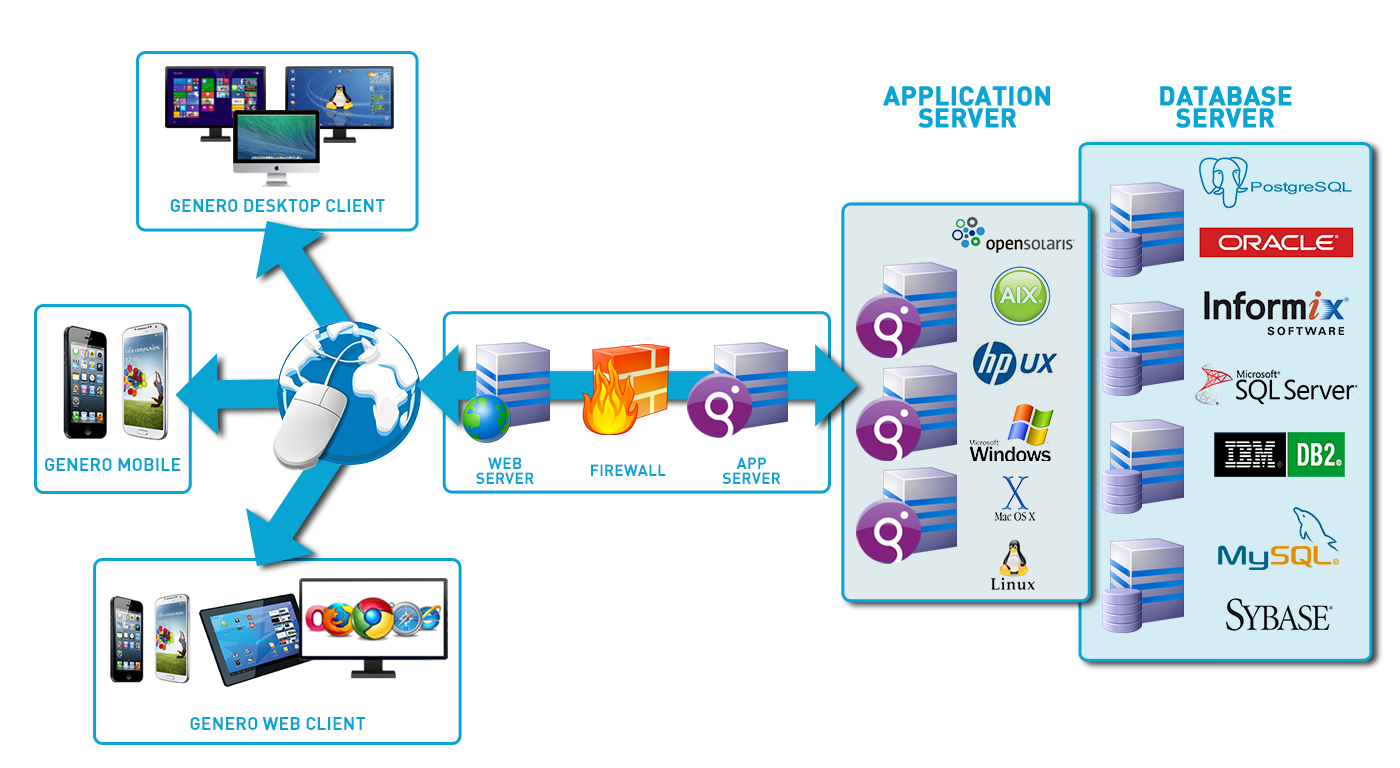No-Code Solutions for Open Platform Database Creation: Develop Without Coding Abilities
No-Code Solutions for Open Platform Database Creation: Develop Without Coding Abilities
Blog Article
Discover Just How Scalable Data Sources Can Be Utilized Without Coding to Boost Your Service Operations
In today's hectic organization setting, the capability to take care of and evaluate information efficiently is vital. no-code. Scalable data sources, specifically when coupled with no-code remedies, supply a transformative technique that empowers non-technical users to streamline operations.
Comprehending Scalable Data Sources
Scalable databases are necessary for modern-day company operations, allowing organizations to successfully manage enhancing quantities of information without compromising performance. These databases are created to expand and adapt to the transforming needs of a company, making sure that they can handle larger datasets and more intricate questions as organizational needs progress.
Recognizing scalable data sources involves recognizing their two main kinds: upright scaling and straight scaling. Upright scaling, or "scaling up," involves adding even more power (CPU, RAM) to an existing web server to boost performance. Alternatively, straight scaling, or "scaling out," requires including more servers to distribute the tons, which usually causes better flexibility and fault resistance.
An additional critical element is the design of scalable data sources, which can be either non-relational or relational. Relational databases, such as MySQL and PostgreSQL, are structured and use SQL for queries, while non-relational data sources, like MongoDB and Cassandra, provide more flexibility with unstructured information.
Ultimately, understanding scalable databases is vital for businesses intending to utilize information as a critical property, enabling them to remain competitive in a progressively data-driven atmosphere.

Advantages of No-Code Solutions
Unlocking the capacity of no-code solutions equips businesses to enhance procedures and enhance efficiency without the requirement for extensive programs understanding. These systems allow non-technical individuals to produce, change, and handle data sources effortlessly, hence equalizing accessibility to modern technology across teams.
Among the key advantages of no-code solutions is their speed of execution. Companies can swiftly release applications and automate procedures, dramatically minimizing the moment invested in growth cycles. This dexterity enables companies to respond immediately to market modifications and client demands, cultivating an one-upmanship.
In addition, no-code systems lower dependence on IT divisions for day-to-day jobs, allowing technical groups to concentrate on more complex projects that call for specialized abilities. This shift not only maximizes source appropriation however likewise promotes development within the organization.
Cost-effectiveness is another benefit, as no-code solutions can lower development and upkeep expenditures. By decreasing the demand for coding knowledge, firms can harness the abilities of their existing workforce without the expenses of employing extra employees.
Popular No-Code Database Tools
The rise of no-code services has actually led to the introduction of different database tools that deal with services seeking effectiveness and accessibility. These devices equip users with minimal technological know-how to create, manage, and adjust databases seamlessly.

Caspio sticks out for its capability to develop web applications without any coding. It allows services to create robust data sources and deploy applications quickly, providing to different industry needs. In a similar way, Flair uses easy to use interfaces and effective data administration capabilities, allowing organizations to construct personalized applications tailored to their workflows.

Usage Instances in Company Procedures
Just how can services take advantage of data source tools to enhance their operations? Scalable databases provide companies with effective abilities to handle and evaluate data without the demand for comprehensive coding knowledge. These devices can simplify numerous service processes, ultimately bring about boosted performance and efficiency.
One popular usage instance is client connection administration (CRM) Companies can utilize scalable data sources to track customer communications, choices, and feedback, enabling personalized interaction helpful hints and much better solution. By streamlining this information, groups can team up a lot more efficiently and reply to client needs in real-time.
An additional considerable application is inventory monitoring. Business can use no-code database devices to keep an eye on stock degrees, track deliveries, and forecast need. This ensures ideal inventory degrees, reduces waste, and reduces stockouts.
In addition, job monitoring can take advantage of scalable data sources by allowing groups to take care of tasks, deadlines, and sources in a linked platform. With real-time updates and information visualization, task managers can make educated choices.
Getting Started With Implementation
Applying scalable databases in organization operations needs an organized strategy to guarantee effective integration and usage. The very first step is to conduct an extensive needs assessment, determining details business requirements, data types, and anticipated growth patterns. This foundational understanding will lead the option of the appropriate database option.
Following, choose an easy to use, no-code data source system that straightens with your functional objectives. no-code. Several modern services provide user-friendly user interfaces, permitting non-technical customers to take informative post care of information effectively. After selecting a platform, establish a clear information style that lays out how data will certainly be organized, accessed, and preserved
Training is important; make sure that team members are furnished with the essential abilities to use the data source. Think about offering tutorials or workshops to acquaint team with the system's capabilities.
Final Thought
Finally, the combination of scalable databases via no-code services provides significant advantages for organization procedures. These platforms empower non-technical customers to successfully take care of and examine data, facilitating boosted decision-making and partnership. By embracing tools such as Airtable and Concept, organizations can simplify procedures and reduce dependence on IT sources. Eventually, leveraging these modern technologies can lead to enhanced performance and functional effectiveness, positioning services for sustained development in an affordable landscape.
One preferred no-code database tool is Airtable, which incorporates the capability of see here now a spreadsheet with the power of a data source.How can services leverage data source devices to enhance their procedures? Companies can make use of scalable databases to track client communications, choices, and feedback, enabling tailored communication and much better solution.Implementing scalable databases in service procedures needs an organized approach to make sure effective integration and usage.In final thought, the integration of scalable data sources via no-code solutions presents significant advantages for service procedures.
Report this page